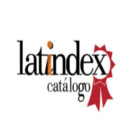Indexing services

About the journal
Since 1992, Revista del Instituto de Investigaciones en Ciencias de la Educación, a biannual publication, presents scientific and academic knowledge on the field of education. The journal publishes research articles and original contributions that enrich the debate on educational issues and matters related to the local, national, regional and international fields. It is aimed at university and school administrators and coordinators, researchers, officials, teachers and students. From issue 30 onwards, the journal is published in digital format and it is available in Open Access.
The issues printed between 1992 and 2010 can be accessed in the institutional repository of Facultad de Filosofía y Letras: http://repositorio.filo.uba.ar/handle/filodigital/4898
The Journal is included in the Latindex catalog.
The call for papers is open throughout the year.
CODE OF ETHICS
IICE Journal adheres to the Code of Conduct and Best Practices established by the Committee on Publication Ethics (COPE) (Code of Conduct and Best Practice Guidelines for Journal Editors and Code of Conduct for Journals Publishers). In compliance with this code, the journal will ensure the scientific quality of the publications and their relevance considering the needs of both readers and authors. The code is addressed to the editorial team, and also to authors and reviewers. Papers that do not comply with these ethical standards are rejected.
DIGITAL PRESERVATION POLICY
The IICE Journal is part of the institutional repository Filo:Digital (http://repositorio.filo.uba.ar/) which belongs to Facultad de Filosofía, Universidad de Buenos Aires, which digitally archives and guarantees the preservation of the issues published in printed form.
COPYRIGHT NOTICE
Authors who publish in this journal accept the following conditions:
The Authors retain the copyright and grant the journal the right of first publication, with the work registered under the License Creative Commons Atribución-CompartirIgual 4.0 Internacional, which allows third parties to share and adapt contents published for any purpose as long as authorship is properly acknowledged and a link to the license is provided, stating if any changes have been made. If a mix, transformation or creation is made based on the original material, its contribution shall be distributed under the same license as the original.
Authors may make other independent and additional contractual arrangements for non-exclusive distribution of the version of the article published in this journal (e.g., inclusion in an institutional repository or publication in a book) as long as they clearly indicate that the work was first published in this journal.
Authors are allowed and encouraged to publish their work on the Internet (e.g. on institutional or personal websites).
PLAGIARISM DETECTION
When there are indications or suspicions of plagiarism, the Committee uses free software for plagiarism detection: http://plagiarism-detect.com/
SECTION POLICIES
ARTICLES
|
|
|
|
DOSSIER
|
|
|
|
NOTE
|
|
|
|
PROLOGUE
|
|
|
|
PEER REVIEW PROCESS
Article evaluation process
The papers received are subject to a first evaluation by the Editorial Committee, in order to verify whether they meet the requirements of the journal’s profile and all its formal editorial guidelines. If accepted, this body proposes two external evaluators specialized in the subject matter, either from national or international universities, who shall revise each article. The evaluation process is double blind, that is, the anonymity of authors and evaluators is maintained throughout the process.
The evaluators’ opinions are informed to the authors stating one of the following three results:
If accepted by one of the evaluators but rejected by the other one, the text is sent to a third evaluator whose decision will define the publication of the article. In this case, the author is sent the two opinions that the journal considered for the decision.
Evaluators shall be allowed a maximum period of six months to express their opinions, as of the date when the receipt of the article is issued. The evaluators’ final decision is not subject to appeal.
Self-archive policy
This journal allows the deposit in repositories, institutional pages or others, of all versions of the article.

Revista del IICE | ISSN 0327-7763 (impreso) ISSN 2451-5434 (en línea)
Instituto de Investigaciones en Ciencias de la Educación - Filo:UBA
Puan 480, 4º piso, of. 440 - CABA - Buenos Aires
tel. 5287-2870
iiceuba@filo.uba.ar | iice.institutos.filo.uba.ar